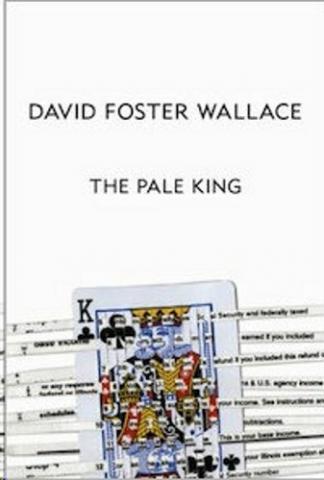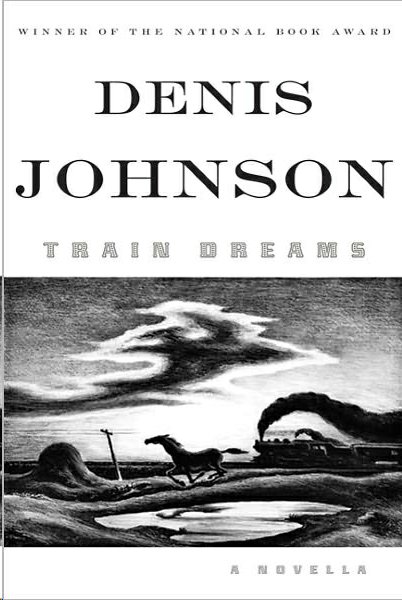Two Months Later, the Pulitzer Prize Rebuff Still Speaks Volumes

For the first time in 35 years and the 11th time in history, this year’s Pulitzer Prize deliberately overlooked all three fiction nominees. Karen Russell’s Swamplandia!, David Foster Wallace’s The Pale King, and Denis Johnson’s Train Dreams were speculated to be stranger choices than usual. While overall reception of each book cast them as individually praiseworthy, one was an offbeat debut, another a posthumously completed labyrinth, and the third a novella. This motley trio admittedly inspired a few raised eyebrows, but none were prepared for the news that would precipitate from the Pulitzer Board’s final conference -- that, in fact, none had been worthy of the prestigious literary prize.
The outcry was loud and sounded from all corners of the literary community. Readers were disappointed that the past year of outstanding fiction would leave no impression on the evolving standard of exceptional writing. Members of the publishing industry were frustrated at the prospect of losing that surge in book sales brought on by the annual announcement. Writers vicariously felt the sting of rejection through their peers and voiced their resentment of this unintended blow. The overall response on April 16 was tinged with disappointment and traces of desperation.
As an institution, book publishing is experiencing a change in landscape. The implementation of technology has obscured the view enough to introduce a feeling of vulnerability to the industry. Undulations of tenuousness and shifting have felt uncomfortable to many, and as a result, the “Pulitzer snub” has felt like a personal affront. Yet it has produced a positive opportunity: the chance to pause and reconsider the role of the Pulitzer Prize -- what it has been and what it ought to be -- in assessing great works.
The Guardian published an article quoting University College London English Professor and former Booker Prize judge John Mullan saying that it was “Absolutely, certainly, not an option” to forgo picking a winner for the Booker. “You go into it with the knowledge that some years are better than others. Some are very good, some are duff, and you just pray you get a good year.”
This differs starkly from the Pulitzer’s philosophy of a more objective or nonconditional standard of quality. His point of view takes into consideration those cases where a novel went on to become a seminal work despite receiving little recognition from prize juries.
Such was the case with Fahrenheit 451, which was awarded a Special Citation Pulitzer in 2007, 54 years after its original publication date. The ability of a prize, no matter how esteemed, to influence general regard for a novel is limited. Acknowledging this as a judge, Mullan says, “gives you a rueful realism about the process.”
That realism may simply be the adjustment readers will need to make in their future expectations of the Pulitzer.
Mark Tarallo is the president of the American Independent Writers, an organization that works to support and advocate for writers across various genres. He explains, “The prize is, in my eyes, useful to the reader. The Board plays a good role in promoting good writing, and they can give their star of approval.” However, while he describes this year’s decision as “a shame and a shot in the arm,” he was not surprised by the news. “There should be years where no prize is given, or when more than one is given, or that the nominations could even be overridden to award the prize to someone else.” Such was the case for Wayne Peterson in 1992, who won the prize in music after Ralph Shapey had already been chosen by the jury. Though controversy ensued, the Board did not revoke its decision.
The paramount criterion for the award is, in the first place, vague at best. “Distinguished” is the word used most often by the Pulitzer Board to describe the winning characteristic they are searching for. But the idea that any one person could distill enough disparate notions of the word, that any composite of experience and bias could effectively inform one’s definition of “distinguished” is difficult to imagine. Even if a standard of excellence could be determined, it would be irresponsible to apply such a subjective term evenly across all expressive endeavors in a given medium.
Any book, whether it is a masterfully conceived classic or a pulpy plot-driven diversion, is valuable to the reader if they believe it to be so. The achievement lies in the relationship of the book to its audience, not an official validation from a third party. This is in essence the inherently personal nature of fiction writing and of the novel in particular.

Many are unaware that this year, the Pulitzers overlooked nominees in another category as well -- that of editorial writing -- and this is largely because the media remained relatively silent on the subject. The news coverage was minimal compared to the outrage over the fiction category.
Another interesting issue that has emerged from this ordeal is that those struggling to determine their own standard of literary greatness now have more than an ongoing inner dialogue to contend with because with the changing terrain of publishing comes a change in the way books are being consumed.
The simple existence of e-books completely alters the way a person can engage with what they are reading, and we have yet to see the long-term effects of “e-lit.” “I have mixed feelings about the digital trend. It is going to change the nature of reading,” Tarallo says. While, he remarks, e-books have seemed to increase book sales, and while the “international reach of self-publishing is incredible and has enriched the medium,” digitization may affect the attention span of readers. A person might be less likely to attempt Thomas Pynchon or Herman Melville on an e-reader, and this may change the standard for what gets published.
This extends beyond the technology to the writers themselves. For years now, readers have witnessed the replacement of dialogue in novels with text messages and email conversations, sometimes formatted as if they had been copied and pasted right on to the page. Last year’s Pulitzer Prize winner in fiction, Jennifer Egan’s A Visit From The Goon Squad, contained an entire chapter in the form of a PowerPoint presentation.
The younger generations of writers, those who have been raised in complete Internet immersion and gadget fluency, will have an entirely different voice to share with the world. Tarallo predicts that “this new, younger generation may bring new innovation to the medium, as a ‘hybrid form’ of writing.” Naysayers of the e-book revolution scoff at the loss of authenticity; sterile hardware and the surreal prospect of waiting for a book to download to an external (also expensive) device feels deprived of warmth and the familiarity of ritual.
And while it has been a polarizing subject, these changes do not necessarily pose a dangerous threat to the integrity of the literary tradition. The structure of the novel, whatever metamorphoses await, cannot be compromised as a means of creative expression. If the Pulitzer Prize debacle has shed light on anything, it is that the literary community will weather the uncertainty ahead with steadfast devotion to books and writing. Standards may get redefined and the ground may shift, but then again, they always have.
Author Bio:
Veronica Giannotta is a contributing writer at Highbrow Magazine.
Read Highbrow Magazine writer Gerry LaFemina’s article about latest publishing trends here.
For Highbrow Magazine





























































































































































































































































































































